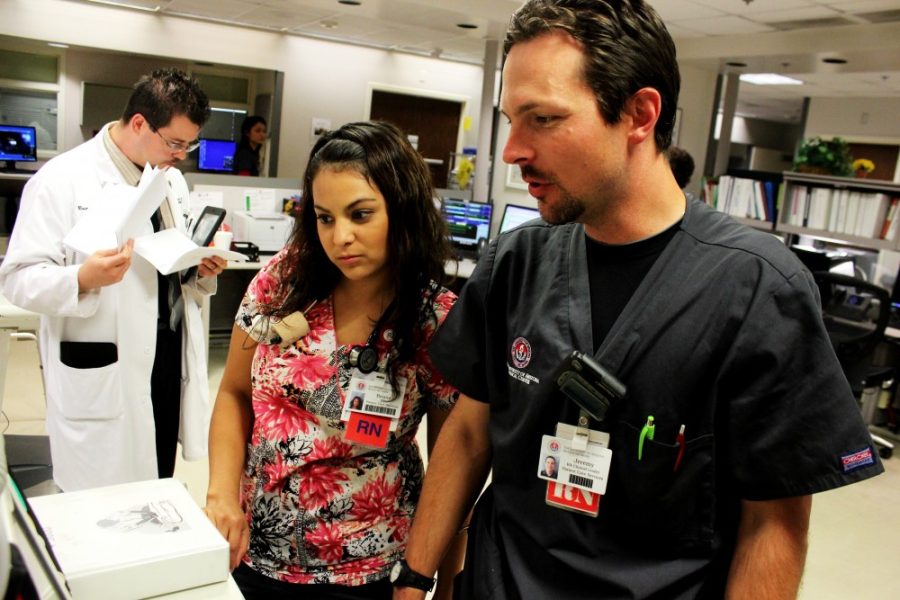As the need for efficient healthcare increases daily, nurse practitioners are in high demand and physicians are learning to share their territory.
Although physicians have around four times more training than nurse practitioners, nurse practitioners are fully capable of treating patients in primary care and clinical settings, said Dr. Conrad Clemens, associate dean for graduate medical education program at the University of Arizona College of Medicine.
“Historically, physicians have felt as if no one can do our job, no one is as good as we are,” Clemens said.
Clemens said that nurse practitioners have much more time to spend with patients and there is a good chance you can see a nurse practitioner more quickly than a physician.
Nurse practitioners are becoming more prevalent in primary care because they have the ability to diagnose, treat and often prescribe medication to patients, depending on the state, according to Clemens.
Heather Carlisle, an acute care nurse practitioner and clinical assistant professor at the UA, said she believes that nurse practitioners look at patients as a whole, with a broader perspective, and don’t focus solely on diagnosis.
“There is a stereotype that physicians don’t spend enough time with patients,” Carlisle said, “but nurse practitioners have less pressure to see more patients.”
Sometimes it can take up to a week to get an appointment to see your physician, while it may take only a day or so to see a nurse practitioner in the same office, Clemens said.
Carlisle said the growing demand for nurse practitioners is because people are now working to improve their health after neglecting it due to nationwide health care struggles.
Laura Bassi, a nursing junior, said she chose to pursue a career in nursing because she has a passion for medicine, but also because she wants more patient interaction than what doctors have.
“I love that nurses get to make real connections with patients,” Bassi said.
While students that graduate from the nursing program at UA can go directly into an entry level nursing position at a hospital or primary care office, becoming a nurse practitioner requires a bit more schooling and training.
After receiving a Bachelor of Science in Nursing, a potential nurse practitioner would go back to school and complete 74 credits, 1,000 practice immersion hours and a scholarly project, according to the UA College of Nursing website.
Sara Ameli, a nursing senior and the president of Student Nurses at the UA, is starting the nurse practitioner program in August.
Ameli said that she originally wanted to become a doctor and attend medical school, started looking into other options after she volunteered at Phoenix Children’s Hospital and saw the interns come to work exhausted every day.
Nurse practitioners have the ability to specialize, and the UA program focuses on pediatrics, family and acute care. Ameli said that she is pursuing the family route, and hopes to work in a clinic or primary care office in the future.
“One of the reasons I like the nurse practitioner route better is because it’s focused on education and prevention,” Ameli said.
Bassi said that she plans to go straight into nursing after graduating, working in an emergency department to gain valuable experience before she goes back to school.
“I love the opportunities that nursing offers,” Bassi said. “We can work anywhere in the world, in any field of medicine.”
—Follow news reporter Lauren Niday on Twitter @lauren_niday









